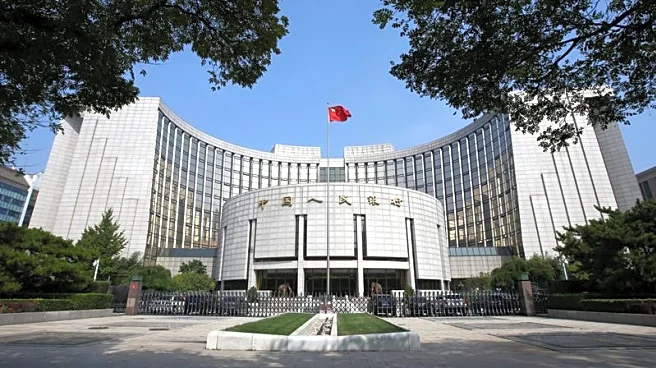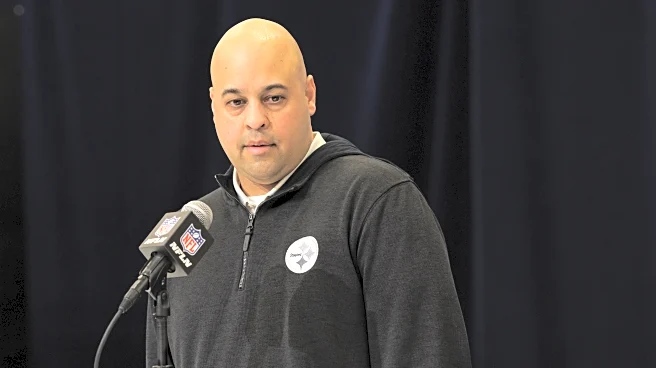Rapid Read • 7 min read
Mark Christie, the chairman of the Federal Energy Regulatory Commission (FERC), has resigned from his position, leaving the agency with only three sitting commissioners. Christie, who was appointed by President Trump, announced his departure on social media, stating he is not retiring but looking forward to future opportunities. During his tenure, Christie raised concerns about the U.S. grid reliability crisis and advocated for reducing financial incentives for transmission line construction. The White House plans to appoint Commissioner David Rosner as interim chairman, a decision that has garnered bipartisan support. Rosner's appointment comes amid discussions on colocating data centers at power plants, a policy area that FERC is currently exploring.
AD
Christie's resignation and the subsequent appointment of Rosner as interim chairman could significantly impact FERC's policy direction, particularly regarding grid reliability and data center colocation. The agency's decisions influence the energy sector, affecting utility companies, consumers, and environmental policies. With only three commissioners, FERC maintains a quorum to issue orders, but potential conflicts of interest may delay certain decisions. The leadership transition may also affect ongoing debates about energy infrastructure and market regulations, impacting stakeholders across the industry.
The White House has nominated Laura Swett and David LaCerte to fill the two vacant commissioner seats, pending Senate approval. This process may extend into late 2025, potentially affecting FERC's ability to address critical energy issues. The agency's future decisions on data center colocation and grid reliability will be closely watched by industry leaders and policymakers, as they could shape the U.S. energy landscape for years to come.
The appointment of Rosner, a Democrat, as interim chairman by a Republican administration highlights a strategic approach to bipartisan cooperation in energy policy. This move may signal a shift towards more collaborative efforts in addressing complex energy challenges, such as integrating renewable energy sources and enhancing grid security.
AD
More Stories You Might Enjoy












